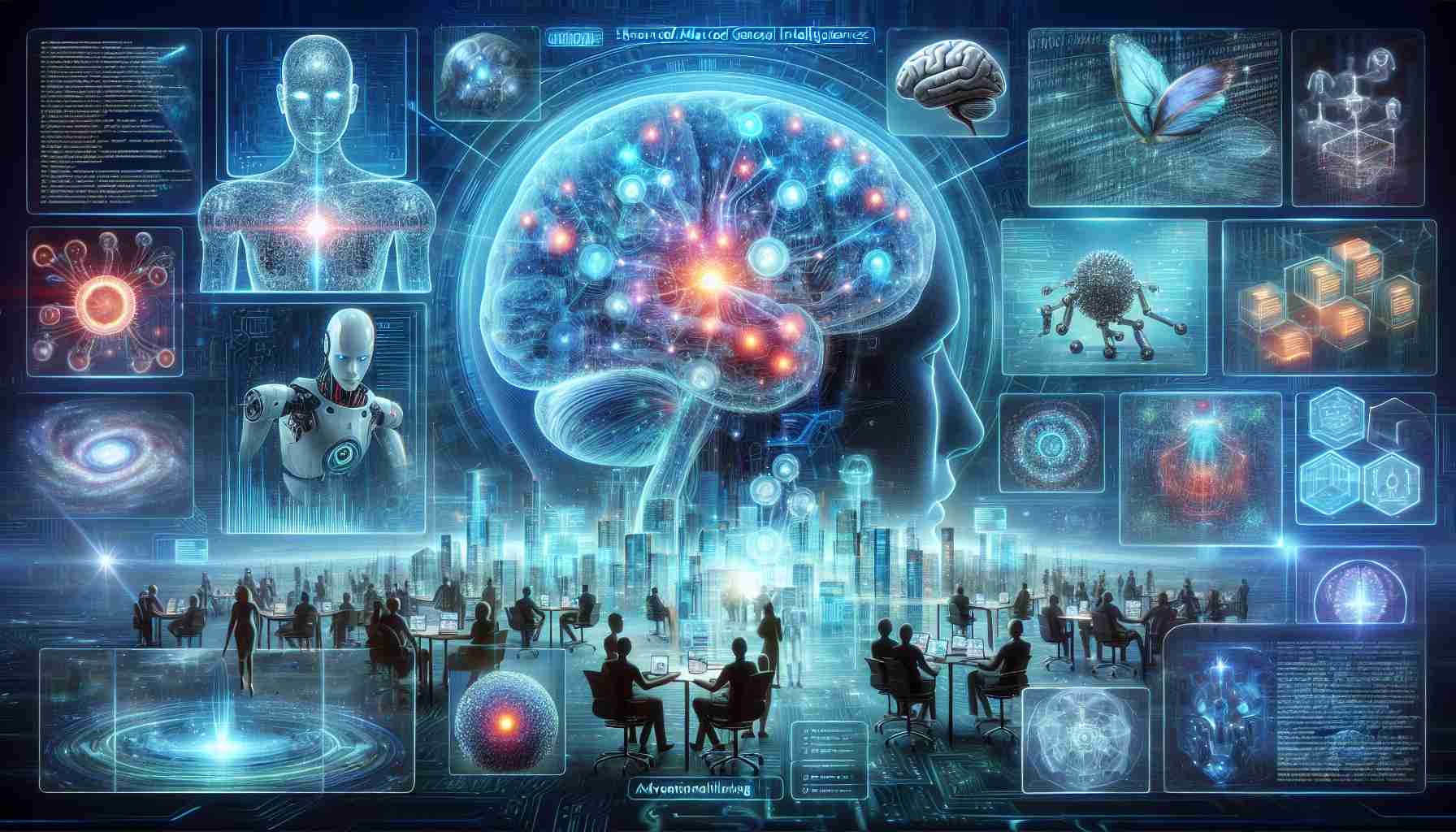Artificial General Intelligence (AGI) is on the brink of evolution, with patterns pointing towards significant technological advancements within the next couple of years. Projections indicate that AGI systems such as ChatGPT-4 are precursors to a more profound development in superintelligent entities. The pace at which technology and computational capabilities are advancing suggests that we’re accumulating the necessary momentum for an imminent exponential growth in the field.
While true technological singularity, as discussed at Singularity University, may still be a distant concept, predicted to unravel by 2035, the seeds of this future are already being sown. The question of whether AI will challenge humanity is no longer speculative but is instead taking shape in the present day. Chinese AI startups, for example, have reached valuations as high as 2 billion dollars, with the market anticipated to reach 80 billion dollars by next year, outstripping the annual growth rate of traditional markets like the meat industry.
As “assistants” take over routine tasks, “agents” have begun to venture into territories of intellectual work, leading to a blurred line between tasks attributed to humans and machines. The subsequent phase of superintelligence will potentially entail capabilities beyond human comprehension, conquering constraints tied to physical space and time. Concepts such as cybernetic teleportation and digital twins could one day become a reality, allowing for a radical transcendence of our current physical limitations.
The fundamental paradigms of human philosophy may have to be re-evaluated in the wake of such advancements. The interactive dynamic between humans and AI, where once humans controlled interactions, might see a pivot as AI’s understanding and predictive capabilities advance. The notion that AI may soon not just emulate but predict and influence human behavior heralds a transformative chapter in human existence.
Fostering a cooperative framework among humans may become imperative to ensure the ethical and controlled evolution of AI. The imperative for humanity may not be to outcompete each other but to survive and thrive collectively in a future where AI forms an integral part of governance and decision-making processes. It is of utmost importance to mentor AI in alignment with human values and maintain our ability to think reflectively, strategically, and critically to ensure that AI augmentation serves to enhance rather than diminish the human experience.
Adding relevant facts not mentioned in the article:
The development of Artificial General Intelligence (AGI) raises significant ethical considerations, such as the alignment problem, which concerns how to ensure that AGI systems’ goals are aligned with human values. Researchers like those at the Future of Humanity Institute at Oxford University are studying the potential risks and governance mechanisms required to safely integrate AGI into society.
The economic impact of AGI could be both positive and negative. On one hand, it may lead to massive increases in productivity and the creation of new markets and jobs. On the other, it raises concerns about job displacement, inequality, and the need for retraining workers.
Governmental and international regulations will play a crucial role in guiding the development and deployment of AGI. Organizations like the European Union have begun to propose regulatory frameworks for AI, which could serve as templates for AGI regulation.
International competition and cooperation are factors that will influence AGI’s trajectory. As countries and corporations vie for leadership in AGI technology, there is both a risk of an arms race in AGI capabilities and an opportunity for collaborative efforts to address global challenges.
Key Questions and Answers:
1. What is the alignment problem in AI, particularly in the context of AGI?
The alignment problem focuses on aligning AGI’s goals and decisions with human values and interests to prevent harmful outcomes intentionally or unintentionally caused by AGI acting on misaligned objectives.
2. How might AGI affect the global economy?
AGI could lead to unprecedented economic growth through increased efficiency and new industries. However, it could also exacerbate wealth inequality and disrupt the labor market, necessitating new social safety nets and retraining programs for displaced workers.
3. What is the role of international cooperation in the development of AGI?
International cooperation is critical to establish standards, share research, and ensure that AGI is developed safely and ethically. Joint efforts can aid in preventing an AGI arms race and addressing mutual global challenges that AGI could help solve.
Key Challenges and Controversies:
Control and Safety: Ensuring that AGI systems are controllable and safe, especially as they may eventually exceed human intelligence, is a significant challenge that researchers are trying to address.
Dual Use: Like many technologies, AGI could have both beneficial and harmful applications (dual use), posing the challenge of preventing misuse while promoting positive uses.
Transparency and Trust: Balancing the complexity of AGI systems with the need for transparency to gain public trust is a key controversy. People may be wary of systems they can’t understand or audit.
Advantages of AGI:
Efficiency and Productivity: AGI promises to automate complex tasks, leading to impressive productivity gains across numerous sectors.
Problem-solving: AGI could help address many of humanity’s most pressing challenges, including climate change, disease, and global poverty, due to its superior analysis and decision-making capabilities.
Disadvantages of AGI:
Displacement of Jobs: AGI can lead to significant job displacement, especially in intellectual and routine work, requiring a societal shift in the job market and education.
Existential Risk: AGI has the potential to pose an existential risk to humanity if not designed or controlled properly.
For further reading on the development of AGI and its implications, explore the following resources:
– Singularity University
– Future of Humanity Institute
– Please note that concrete URLs to regulatory frameworks or specific organizations’ research papers were not provided due to the absence of specific URLs in the prompt. However, if such specific information is needed, please let me know for additional guidance.

